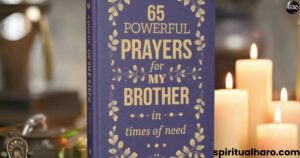The Bible is filled with wisdom, history, and spiritual guidance, but it also contains some Weird Bible Verses that may surprise readers. These verses range from unusual commands to shocking events that seem out of place in a sacred text. Many people are unaware of these bizarre passages, which often leave them questioning their meaning and significance. While some of these verses may appear strange at first glance, they often carry deeper messages about faith, obedience, and God’s relationship with humanity.
In this article, we will explore 50 of the most Weird Bible Verses, shedding light on their context and purpose. These verses come from both the Old and New Testaments and cover a variety of themes, from unusual laws to miraculous events. By examining these passages, we can gain a fresh perspective on the diversity of the Bible and the unique ways God has communicated with His people throughout history.
Here are the list of 50 Most Weird Bible Verses
Weird Bible Verses in the Old Testament
The Bible is filled with wisdom, guidance, and spiritual teachings, but it also contains Weird Bible Verses that may seem strange, bizarre, or even shocking when read today. Some of these passages describe unusual laws, dramatic punishments, or peculiar commands from God. While these Weird Bible Verses may appear odd, they often carry deep historical, cultural, or symbolic meanings. Below are some of the most Weird Bible Verses from the Old Testament, offering a glimpse into the unusual and sometimes unsettling events recorded in Scripture.
Ezekiel 4:12-15 – Bread Baked Over Human Dung
“And you shall eat it as a barley cake, having baked it in their sight over a fire of human dung.”
One of the most Weird Bible Verses appears in Ezekiel, where God instructed the prophet to demonstrate the suffering that Israel would endure in exile. He was commanded to bake his bread over human dung as a symbol of the defilement the Israelites would experience. Ezekiel, distressed by this command, pleaded with God, who then allowed him to use cow dung instead. This passage highlights the severity of Israel’s coming punishment and serves as a visual representation of the people’s impurity due to their sins.
Judges 3:21-22 – A Brutal Assassination
“Ehud reached with his left hand, drew the sword from his right thigh and plunged it into the king’s belly. Even the handle sank in after the blade, and his bowels discharged.”
Among the most Weird Bible Verses is this gruesome account of Ehud, a left-handed Israelite, assassinating King Eglon of Moab. Because most warriors were right-handed, Ehud’s concealed weapon went unnoticed. When he thrust the sword into Eglon, the blade got stuck in the overweight king’s belly, causing his intestines to spill out. This shocking and vivid story demonstrates the brutal realities of ancient warfare and how God used unexpected heroes to deliver Israel.
2 Kings 2:23-24 – The Bears and the Mocking Boys

“He went up from there to Bethel, and while he was going up on the way, some small boys came out of the city and jeered at him, saying, ‘Go up, you baldhead! Go up, you baldhead!’ …and he cursed them in the name of the Lord. Then two female bears came out of the woods and tore forty-two of the boys.”
This is one of the Weird Bible Verses that often sparks controversy. The prophet Elisha was mocked by a group of young boys for being bald. In response, he cursed them in God’s name, and two bears emerged from the forest and mauled forty-two of them. Some interpret this event as a lesson on respecting God’s messengers, while others see it as a stark reminder of divine justice.
Genesis 38:8-10 – The Sin of Onan
“And Judah said unto Onan, Go in unto thy brother’s wife, and marry her, and raise up seed to thy brother. And Onan knew that the seed should not be his; and it came to pass, when he went in unto his brother’s wife, that he spilled it on the ground, lest that he should give seed to his brother. And the thing which he did displeased the LORD: wherefore he slew him also.”
This passage is another example of Weird Bible Verses, detailing how Onan, who was supposed to fulfill his duty by producing an heir for his deceased brother, refused to do so and instead deliberately avoided conception. Because of this, God punished him with death. This passage has been debated for centuries, with some seeing it as a lesson on obedience, while others interpret it as a warning against selfishness and dishonesty.
1 Samuel 6:19 – Looking into the Ark
“But God struck down some of the inhabitants of Beth Shemesh, putting seventy of them to death because they looked into the ark of the Lord. The people mourned because of the heavy blow the Lord had dealt them.”
This verse is another example of Weird Bible Verses, as it describes the severe punishment for those who dared to look inside the Ark of the Covenant. God had given strict instructions on how it should be handled, and when some men from Beth Shemesh looked inside it out of curiosity, they were struck dead. This verse highlights the seriousness of God’s holiness and the importance of respecting His commands.
Hosea 1:2-3 – A Strange Marriage Command
“When the Lord began to speak through Hosea, the Lord said to him, ‘Go, marry a promiscuous woman and have children with her, for like an adulterous wife this land is guilty of unfaithfulness to the Lord.’ So he married Gomer daughter of Diblaim, and she conceived and bore him a son.”
This is one of the Weird Bible Verses that stands out because of its unusual command. God instructed the prophet Hosea to marry an unfaithful woman as a symbolic act representing Israel’s unfaithfulness to God. Hosea’s troubled marriage reflected how Israel had turned away from God and chased after false gods. This unusual command demonstrated God’s deep love and willingness to forgive His people despite their sins.
Weird Bible Verses in the Old Testament
The Bible is filled with wisdom, guidance, and spiritual teachings, but it also contains Weird Bible Verses that may seem strange, bizarre, or even shocking when read today. Some of these passages describe unusual laws, dramatic punishments, or peculiar commands from God. While these Weird Bible Verses may appear odd, they often carry deep historical, cultural, or symbolic meanings. Below are some of the most Weird Bible Verses from the Old Testament, offering a glimpse into the unusual and sometimes unsettling events recorded in Scripture.
Ezekiel 4:12-15 Bread Baked Over Human Dung
“And you shall eat it as a barley cake, having baked it in their sight over a fire of human dung.”
One of the most Weird Bible Verses appears in Ezekiel, where God instructed the prophet to demonstrate the suffering that Israel would endure in exile. He was commanded to bake his bread over human dung as a symbol of the defilement the Israelites would experience. Ezekiel, distressed by this command, pleaded with God, who then allowed him to use cow dung instead. This passage highlights the severity of Israel’s coming punishment and serves as a visual representation of the people’s impurity due to their sins.
Judges 3:21-22 A Brutal Assassination
“Ehud reached with his left hand, drew the sword from his right thigh and plunged it into the king’s belly. Even the handle sank in after the blade, and his bowels discharged.”
Among the most Weird Bible Verses is this gruesome account of Ehud, a left-handed Israelite, assassinating King Eglon of Moab. Because most warriors were right-handed, Ehud’s concealed weapon went unnoticed. When he thrust the sword into Eglon, the blade got stuck in the overweight king’s belly, causing his intestines to spill out. This shocking and vivid story demonstrates the brutal realities of ancient warfare and how God used unexpected heroes to deliver Israel.
2 Kings 2:23-24 The Bears and the Mocking Boys
“He went up from there to Bethel, and while he was going up on the way, some small boys came out of the city and jeered at him, saying, ‘Go up, you baldhead! Go up, you baldhead!’ …and he cursed them in the name of the Lord. Then two female bears came out of the woods and tore forty-two of the boys.”
This is one of the Weird Bible Verses that often sparks controversy. The prophet Elisha was mocked by a group of young boys for being bald. In response, he cursed them in God’s name, and two bears emerged from the forest and mauled forty-two of them. Some interpret this event as a lesson on respecting God’s messengers, while others see it as a stark reminder of divine justice.
Genesis 38:8-10 – The Sin of Onan
“And Judah said unto Onan, Go in unto thy brother’s wife, and marry her, and raise up seed to thy brother. And Onan knew that the seed should not be his; and it came to pass, when he went in unto his brother’s wife, that he spilled it on the ground, lest that he should give seed to his brother. And the thing which he did displeased the LORD: wherefore he slew him also.”
This passage is another example of Weird Bible Verses, detailing how Onan, who was supposed to fulfill his duty by producing an heir for his deceased brother, refused to do so and instead deliberately avoided conception. Because of this, God punished him with death. This passage has been debated for centuries, with some seeing it as a lesson on obedience, while others interpret it as a warning against selfishness and dishonesty.
1 Samuel 6:19 – Looking into the Ark
“But God struck down some of the inhabitants of Beth Shemesh, putting seventy of them to death because they looked into the ark of the Lord. The people mourned because of the heavy blow the Lord had dealt them.”
This verse is another example of Weird Bible Verses, as it describes the severe punishment for those who dared to look inside the Ark of the Covenant. God had given strict instructions on how it should be handled, and when some men from Beth Shemesh looked inside it out of curiosity, they were struck dead. This verse highlights the seriousness of God’s holiness and the importance of respecting His commands.
Hosea 1:2-3 – A Strange Marriage Command
“When the Lord began to speak through Hosea, the Lord said to him, ‘Go, marry a promiscuous woman and have children with her, for like an adulterous wife this land is guilty of unfaithfulness to the Lord.’ So he married Gomer daughter of Diblaim, and she conceived and bore him a son.”
This is one of the Weird Bible Verses that stands out because of its unusual command. God instructed the prophet Hosea to marry an unfaithful woman as a symbolic act representing Israel’s unfaithfulness to God. Hosea’s troubled marriage reflected how Israel had turned away from God and chased after false gods. This unusual command demonstrated God’s deep love and willingness to forgive His people despite their sins.
Weird Bible Verses in Leviticus A Closer Look
Leviticus, the third book of the Old Testament, is primarily concerned with laws related to purity, rituals, and holiness. While some of these laws make sense in their historical and cultural context, many seem extremely strange or even disturbing to modern readers. These weird Bible verses cover everything from bodily functions to food restrictions, tattoos, and even cannibalism. Below, we explore some of the most unusual passages and their possible meanings.
1. Leviticus 15:19-24 – Menstruation and Ritual Uncleanliness
“When a woman has her regular flow of blood, the impurity of her monthly period will last seven days, and anyone who touches her will be unclean until evening. Anything she lies on during her period will be unclean, and anything she sits on will be unclean. Whoever touches her bed must wash his clothes and bathe with water, and he will be unclean till evening.”
What This Means
This law required a woman on her period to be considered ritually unclean for seven days. Anything she touched, including her bed or chair, was also unclean. If someone else touched these things, they, too, had to go through ritual cleansing.
Why Was This Law Given?
In ancient Israel, ritual purity was a major part of religious life. Some scholars believe this law was not about shaming women but rather about maintaining cleanliness in a time before modern hygiene practices. Others argue that it may have been a way to separate physical conditions from spiritual purity.
2. Leviticus 19:19 – No Mixing of Fabrics and Crops
“Do not wear clothing woven of two kinds of material. Do not plant your field with two kinds of seed. Do not mate different kinds of animals.”
What This Means
This law forbids mixing different materials, plants, or animals. For example, a person could not wear a garment made of both wool and linen or plant two types of crops in the same field.
Possible Reasons
One theory is that this law was meant to reinforce the concept of separation—God wanted Israel to remain distinct from surrounding pagan cultures. Another view is that these laws were symbolic of purity, as mixing things together might represent corruption or disorder.
3. Leviticus 19:27 – No Trimming Beards or Sideburns
“Do not cut the hair at the sides of your head or clip off the edges of your beard.”
What This Means
This verse prohibits shaving the edges of one’s beard or sideburns. Many Orthodox Jewish men still follow this command by growing out their sidelocks (payot).
Possible Reasons
Some scholars believe this law was intended to separate Israelites from neighboring cultures, which practiced specific hairstyles as part of pagan worship. Others suggest it was a sign of religious devotion, similar to the Nazarite vow, which also involved growing out one’s hair.
4. Leviticus 11:9-12 – No Eating Shellfish
“You may eat any animal that has fins and scales. But all creatures in the seas or streams that do not have fins and scales—whether among all the swarming things or among all the other living creatures in the water—you are to regard as unclean.”
What This Means
This law forbids eating shellfish like shrimp, crab, and lobster. Only fish with both fins and scales were considered clean.
Possible Reasons
Many believe this was a health-related law since shellfish can carry harmful toxins and bacteria. Others suggest it was part of a broader dietary law meant to distinguish Israelites from other nations.
5. Leviticus 12:1-5 – Childbirth and Ritual Purity
“A woman who becomes pregnant and gives birth to a son will be ceremonially unclean for seven days… If she gives birth to a daughter, for two weeks the woman will be unclean.”
What This Means
Women were considered impure after giving birth—seven days for a son and fourteen days for a daughter.
Possible Reasons
This rule might have been linked to cultural ideas about purity and the need for postpartum recovery. Some argue the longer period for daughters was due to societal views on gender, though the exact reason is uncertain.
6. Leviticus 19:26-28 – No Eating Blood, Fortune-Telling, or Tattoos
“Do not eat any meat with the blood still in it. Do not practice divination or seek omens. Do not cut your bodies for the dead or put tattoo marks on yourselves.”
What This Means
This passage prohibits eating blood, fortune-telling, and tattooing.
Possible Reasons
- No Eating Blood: Blood was seen as sacred because it symbolized life.
- No Fortune-Telling: Many pagan nations practiced divination, which God forbade to keep Israel spiritually pure.
- No Tattoos: Some believe tattoos were banned because they were linked to pagan mourning rituals.
7. Leviticus 21:16-23 – Priests with Disabilities Cannot Offer Sacrifices
“No man who has any defect may come near: no man who is blind or lame, disfigured or deformed…”
What This Means
This law barred priests with disabilities from offering sacrifices at the altar.
Possible Reasons
Some scholars think this rule was about maintaining ritual perfection rather than discrimination. However, later teachings in the Bible emphasize God’s love for all people, regardless of physical condition.
8. Leviticus 15:16-18 – Seminal Emissions and Cleansing
“When a man has an emission of semen, he must bathe his whole body with water, and he will be unclean till evening.”
What This Means
This law required ritual cleansing after any seminal discharge, including from intercourse.
Possible Reasons
This may have been a practical hygiene rule, but it also reinforced the idea of bodily purity before approaching God.
9. Leviticus 20:18 – No Sex During Menstruation
“If a man has sexual relations with a woman during her monthly period, both of them are to be cut off from their people.”
What This Means
Sex during menstruation was strictly forbidden, with severe consequences.
Possible Reasons
Again, this likely stemmed from the idea of ritual impurity. Some also believe it was an early form of hygiene regulation.
10. Leviticus 26:27-29 – Cannibalism as a Curse
“If in spite of this you still do not listen to me… I will send such a severe famine among you that you will eat the flesh of your sons and daughters.”
What This Means
This disturbing verse warns that disobedience to God could result in extreme famine, forcing people into cannibalism.
Possible Reasons
This was meant as a dire warning about the consequences of forsaking God. While shocking, it reflects a common ancient belief that disobedience led to national disaster.
Shocking Bible Verses About Morality A Closer Look
The Bible is often seen as a guide for morality, but some passages challenge modern perspectives on ethics and justice. Many of these shocking Bible verses about morality contain harsh punishments, violence, and practices that seem extreme today. Some were laws for ancient Israel, while others reflect cultural norms of the time. Below, we analyze some of the most controversial verses, their historical context, and possible interpretations.
1. Deuteronomy 21:18-21 – Stoning a Rebellious Son
“If someone has a stubborn and rebellious son who does not obey his father and mother and will not listen to them when they discipline him… all the men of his town are to stone him to death.”
What This Means
This law allowed parents to bring a rebellious son before the elders, and if found guilty, he could be executed by stoning.
Possible Reasons
- This law was likely meant to deter extreme rebellion and maintain societal order.
- Scholars believe it was rarely enforced and served more as a warning than a common practice.
2. Exodus 21:20-21 – Slave Beating
“Anyone who beats their male or female slave with a rod must be punished if the slave dies as a direct result, but they are not to be punished if the slave recovers after a day or two, since the slave is their property.”
What This Means
This verse permits the punishment of slaves but holds the owner accountable only if the slave dies.
Possible Reasons
- In ancient societies, slavery was common, and these laws aimed to regulate it rather than endorse cruelty.
- Some argue that biblical slavery differed from later forms of slavery, as it often involved indentured servitude rather than racial subjugation.
3. Matthew 10:34-36 – Jesus Bringing a Sword
“Do not suppose that I have come to bring peace to the earth. I did not come to bring peace, but a sword.”
What This Means
Jesus warns that following Him may cause division, even within families.
Possible Reasons
- This does not promote violence but acknowledges that Christianity could create conflict, especially in societies where family loyalty to other religions was strong.
- Jesus’ teachings often divided people because they challenged traditional beliefs.
Related Guide:
30 Bible Verses About Youth Serving God
4. Judges 19:22-29 – The Levite’s Concubine
“So the man took his concubine and sent her outside to them, and they raped her and abused her throughout the night… In the morning, she was dead.”
What This Means
Levite’s concubine was given to a violent mob, and after her death, he cut her body into twelve pieces to send to the tribes of Israel.
Possible Reasons
- This is not a law or command but an example of Israel’s moral collapse at the time.
- The passage is meant to show the consequences of lawlessness when Israel had no king.
5. Exodus 32:26-28 – Mass Killing of Israelites
“Each man straps a sword to his side. Go back and forth through the camp from one end to the other, killing his brother and friend and neighbor.”
What This Means
Moses commanded the Levites to kill 3,000 Israelites who had worshiped the golden calf.
Possible Reasons
- This was a severe punishment for idolatry, showing how seriously God viewed faithfulness.
- Some scholars see this as a historical event rather than a moral directive for all time.
6. Hosea 1:2-3 – God Commands Hosea to Marry a Prostitute
“Go, marry a promiscuous woman and have children with her, for like an adulterous wife this land is guilty of unfaithfulness to the Lord.”
What This Means
God commanded the prophet Hosea to marry a prostitute to symbolize Israel’s unfaithfulness.
Possible Reasons
- This was meant to be a living illustration of how Israel had betrayed God.
- It highlights God’s willingness to redeem and forgive despite unfaithfulness.
7. 2 Samuel 13:1-19 – Amnon Rapes His Sister Tamar
“But he refused to listen to her, and since he was stronger than she, he raped her.”
What This Means
Prince Amnon raped his half-sister Tamar, then rejected her in shame.
Possible Reasons
- The Bible does not condone this action but records it as a tragic event in King David’s family.
- It shows the devastating consequences of unchecked lust and power.
8. Genesis 19:30-38 – Lot’s Daughters and Incest
“So both of Lot’s daughters became pregnant by their father.”
What This Means
After the destruction of Sodom and Gomorrah, Lot’s daughters got him drunk and had incestuous relations to preserve their family line.
Possible Reasons
- This was not a command from God but an act of desperation.
- The Bible often records events without approving of them.
9. Numbers 25:6-9 – Mass Execution for Idolatry
“Moses said to the judges of Israel, ‘Each of you must put to death those of your people who have yoked themselves to the Baal of Peor.’”
What This Means
24,000 Israelites were killed for worshiping Baal and engaging in sexual immorality.
Possible Reasons
- This was a severe punishment to prevent further corruption.
- Idolatry was seen as a direct betrayal of God.
10. Deuteronomy 25:11-12 – Cutting Off a Woman’s Hand
“If two men are fighting and the wife of one of them grabs the other man’s private parts, you shall cut off her hand. Show her no pity.”
What This Means
A woman who intervened in a fight by grabbing a man’s genitals was to have her hand cut off.
Possible Reasons
- This law may have been intended to protect male dignity and lineage.
- Some scholars suggest the punishment was symbolic rather than literal.
Weird Bible Verses About Prophecy Mysterious and Unusual Predictions
The Bible contains many prophetic passages, some of which are strange, symbolic, or difficult to understand. The weird Bible verses about prophecy often involve bizarre actions commanded by God, unusual visions, and symbolic gestures that carried deep spiritual meanings. Below, we explore some of the most intriguing and mysterious prophetic verses.
1. Ezekiel 4:4-6 – Lying on His Side for Over a Year
“Then lie on your left side and put the sin of the people of Israel upon yourself. You are to bear their sin for the number of days you lie on your side 390 days. After you have finished this, lie down again, this time on your right side, and bear the sin of Judah. I have assigned you 40 days, a day for each year.”
What This Means
God commanded the prophet Ezekiel to lie on his left side for 390 days and then on his right for 40 days to symbolize the punishment of Israel and Judah.
Possible Reasons
- Each day represented a year of punishment for the Israelites.
- This prophetic act served as a warning of the coming Babylonian exile.
2. Isaiah 20:2-4 – Walking Naked for Three Years
“At that time the Lord spoke through Isaiah son of Amoz. He said to him, ‘Take off the sackcloth from your body and the sandals from your feet.’ And he did so, going around stripped and barefoot. Then the Lord said, ‘Just as my servant Isaiah has gone stripped and barefoot for three years, as a sign and portent against Egypt and Cush…'”
What This Means
Isaiah was commanded to walk naked and barefoot for three years as a prophetic warning.
Possible Reasons
- This action symbolized the humiliation Egypt and Cush (Ethiopia) would suffer at the hands of the Assyrians.
- Some scholars suggest Isaiah may have worn only minimal clothing rather than being completely naked.
3. Jeremiah 27:2-3 – Wearing an Ox Yoke
“This is what the Lord said to me: ‘Make a yoke out of straps and crossbars and put it on your neck. Then send word to the kings of Edom, Moab, Ammon, Tyre, and Sidon through the envoys who have come to Jerusalem…'”
What This Means
God instructed Jeremiah to wear a wooden yoke (like those used for oxen) on his neck.
Possible Reasons
- The yoke symbolized the coming Babylonian captivity and how Israel and surrounding nations would be under Nebuchadnezzar’s control.
- It was a physical reminder of the burden Israel would bear for their sins.
4. Ezekiel 5:1-4 – Shaving His Head and Burning His Hair
“Now, son of man, take a sharp sword and use it as a barber’s razor to shave your head and your beard. Then take a set of scales and divide up the hair.”
What This Means
Ezekiel was commanded to shave his head and beard, then divide the hair into thirds burning some, striking some with a sword, and scattering the rest.
Possible Reasons
- This act symbolized the different fates of the people of Jerusalem: some would die by fire (war and destruction), some by the sword (violence), and some would be scattered into exile.
5. Jeremiah 13:1-7 – The Ruined Belt
“Go and buy a linen belt and put it around your waist, but do not let it touch water… Take the belt you bought and are wearing around your waist, and go now to Perath and hide it there in a crevice in the rocks… Many days later the Lord said to me, ‘Go now to Perath and get the belt I told you to hide there.’ So I went to Perath and dug up the belt and took it from the place where I had hidden it, but now it was ruined and completely useless.”
What This Means
Jeremiah was told to buy a linen belt, wear it, then bury it and later retrieve it, finding it ruined.
Possible Reasons
- The belt represented Israel’s relationship with God—once valuable but now ruined because of their disobedience.
- This was a warning of how Israel’s pride and sin had made them spiritually useless.
6. Ezekiel 24:15-18 – The Death of Ezekiel’s Wife
“The word of the Lord came to me: ‘Son of man, with one blow I am about to take away from you the delight of your eyes. Yet do not lament or weep or shed any tears.’ So I spoke to the people in the morning, and in the evening my wife died. The next morning I did as I had been commanded.”
What This Means
God told Ezekiel that his wife would die, but he was not allowed to mourn her publicly.
Possible Reasons
- This symbolized how the Israelites would lose their temple (the “delight of their eyes”) and would not have time to mourn due to the Babylonian invasion.
- Ezekiel’s silence reflected the grief that would overwhelm the exiled people.
7. Jeremiah 28:10-11 – Breaking a Wooden Yoke
“Then the prophet Hananiah took the yoke off the neck of the prophet Jeremiah and broke it. And he said before all the people, ‘This is what the Lord says: In the same way, I will break the yoke of Nebuchadnezzar king of Babylon off the neck of all the nations within two years.'”
What This Means
Hananiah, a false prophet, dramatically broke the yoke Jeremiah had been wearing to falsely claim that Israel would be free from Babylon’s rule.
Possible Reasons
- This was a public confrontation between Jeremiah and Hananiah, showing the battle between true and false prophecy.
- God later replaced the broken wooden yoke with an iron yoke, reinforcing His judgment.
8. Ezekiel 37:1-10 – The Valley of Dry Bones
“The hand of the Lord was on me… I saw a great many bones on the floor of the valley… He asked me, ‘Son of man, can these bones live?’ I said, ‘Sovereign Lord, you alone know.’ So I prophesied as I was commanded, and as I was prophesying, there was a noise, a rattling sound, and the bones came together, bone to bone… breath entered them; they came to life and stood up on their feet a vast army.”
What This Means
Ezekiel saw a vision where dead bones came back to life, symbolizing the restoration of Israel.
Possible Reasons
- This vision represented Israel’s return from exile and spiritual revival.
- It is often interpreted as a prophecy about both physical and spiritual resurrection.
9. Isaiah 20:2-4 – Walking Naked (Again)
(Same passage as before—God commanded Isaiah to go naked as a sign of coming judgment on Egypt and Cush.)
“Then, just as the Lord had said, my cousin Hanamel came to me… and said, ‘Buy my field at Anathoth…’ I knew that this was the word of the Lord; so I bought the field.”
What This Means
Jeremiah bought land while Jerusalem was under siege, an act that seemed foolish at the time.
Possible Reasons
- This was a prophetic sign that, despite the coming destruction, God would eventually restore Israel.
- It demonstrated faith that God’s promises would be fulfilled.
Bizarre Bible Verses That Challenge Beliefs
The Bible contains many verses that can be difficult to understand, shocking, or even unsettling. Some challenge traditional beliefs, others seem strange by modern standards, and some require deeper theological or historical context to make sense. Here are bizarre Bible verses that challenge beliefs, along with explanations of their meaning and significance.
1. John 6:53-58 – Eating the Flesh and Drinking the Blood of Jesus
“Jesus said to them, ‘Very truly I tell you, unless you eat the flesh of the Son of Man and drink his blood, you have no life in you. Whoever eats my flesh and drinks my blood has eternal life, and I will raise them up at the last day… For my flesh is real food and my blood is real drink.'” (John 6:53-55)
Why Is This Verse Bizarre?
- It sounds almost like cannibalism, which deeply disturbed Jesus’ audience.
- Many of his followers left him after this teaching (John 6:66).
Possible Meanings
- This is a metaphor for accepting Christ’s sacrifice through faith, particularly in the context of communion (the Eucharist).
- It points to spiritual nourishment rather than literal flesh and blood.
2. Matthew 5:29-30 – Cutting Off Body Parts to Avoid Sin
“If your right eye causes you to stumble, gouge it out and throw it away. It is better for you to lose one part of your body than for your whole body to be thrown into hell. And if your right hand causes you to stumble, cut it off and throw it away…”
Why Is This Verse Bizarre?
- It sounds extreme does Jesus literally want people to mutilate themselves?
- It raises theological concerns about how sin should be dealt with.
Possible Meanings
- This is hyperbolic language meant to stress the seriousness of sin.
- It emphasizes radical self-discipline in avoiding temptation.
3. Genesis 19:30-38 – Lot’s Daughters Sleep with Their Father
“One day the older daughter said to the younger, ‘Our father is old, and there is no man around here to give us children… Let’s get our father to drink wine and then sleep with him.'” (Genesis 19:31-32)
Why Is This Verse Bizarre?
- It describes an incestuous act where Lot’s daughters get him drunk and conceive children by him.
- It challenges ideas of morality and righteousness.
Possible Meanings
- The daughters may have believed they were the last survivors of humanity (after Sodom’s destruction) and acted out of desperation.
- This passage serves as a warning against drunkenness and moral decline.
4. Exodus 4:24-26 – God Tries to Kill Moses
“At a lodging place on the way, the Lord met Moses and was about to kill him. But Zipporah took a flint knife, cut off her son’s foreskin and touched Moses’ feet with it… So the Lord let him alone.” (Exodus 4:24-26)
Why Is This Verse Bizarre?
- God had just chosen Moses to lead Israel, yet suddenly He tries to kill him.
- The connection between circumcision and Moses’ survival is unclear.
Possible Meanings
- Moses had failed to circumcise his son, violating God’s covenant with Abraham (Genesis 17:10-14).
- Zipporah’s quick action fulfilled the covenant requirement, saving Moses.
5. Genesis 38:8-10 – God Killed Onan for Wasting His Seed
“Then Judah said to Onan, ‘Sleep with your brother’s wife and fulfill your duty to her as a brother-in-law to raise offspring for your brother.’ But Onan knew that the child would not be his; so whenever he slept with his brother’s wife, he spilled his semen on the ground… What he did was wicked in the Lord’s sight; so the Lord put him to death also.” (Genesis 38:8-10)
Why Is This Verse Bizarre?
- It appears that God killed Onan for practicing birth control.
- It challenges modern ideas about personal choice and morality.
Possible Meanings
- Onan’s sin was not just spilling his seed but refusing to fulfill his duty to his deceased brother.
- The passage is more about disobedience and selfishness than contraception.
6. Numbers 5:11-31 – The Test for an Unfaithful Wife
“If a woman has gone astray and is unfaithful to her husband… the priest shall have her stand before the Lord… He shall make her drink the bitter water that brings a curse… If she has made herself impure, her abdomen will swell and her womb will miscarry.” (Numbers 5:11-27, condensed)
Why Is This Verse Bizarre?
- It describes a strange ritual where a suspected unfaithful woman must drink a potion to determine her guilt.
- It seems unfair that there is no equivalent test for men.
Possible Meanings
- This was likely an ancient method of resolving accusations in a time before modern forensics.
- Some scholars believe the “bitter water” may have been harmless, and the test was more about proving innocence than causing harm.
7. Deuteronomy 23:1 – No Man with Crushed Genitals Can Enter God’s Assembly
“No one who has been emasculated by crushing or cutting may enter the assembly of the Lord.”
Why Is This Verse Bizarre?
- It seems unfair that men with certain physical conditions are excluded from worship.
- It challenges ideas about God’s inclusivity.
Possible Meanings
- In ancient Israel, physical wholeness was associated with holiness.
- Later, Isaiah 56:3-5 and Acts 8:26-39 show God welcoming eunuchs, indicating a shift in understanding.
8. Judges 11:30-40 – Jephthah’s Daughter Is Sacrificed

“And Jephthah made a vow to the Lord: ‘If you give the Ammonites into my hands, whatever comes out of the door of my house to meet me when I return in triumph will be the Lord’s, and I will sacrifice it as a burnt offering.’ When Jephthah returned home, who should come out to meet him but his daughter…” (Judges 11:30-34)
Why Is This Verse Bizarre?
- Jephthah seems to sacrifice his own daughter to fulfill a vow to God.
- This challenges beliefs about God’s stance on human sacrifice.
Possible Meanings
- Some scholars believe she was not literally sacrificed but instead dedicated to a life of celibacy.
- This passage may serve as a warning against making rash vows.
FAQ’s
What are some Weird Bible Verses?
Many Weird Bible Verses include Ezekiel 4:4-6 (lying on one side for 390 days), Mark 14:51-52 (a young man fleeing naked), and Numbers 5:11-31 (a bizarre test for an unfaithful wife).
What is the weirdest story in the Bible?
One of the Weird Bible Verses tells the story of Balaam’s donkey speaking to him (Numbers 22:21-30), which challenges natural laws and showcases God’s mysterious ways.
What does the Bible say about weird people?
The Bible embraces uniqueness; Weird Bible Verses like 1 Corinthians 1:27 say God chooses the foolish and weak to shame the wise and strong.
What does John 11:35 say in the Bible?
John 11:35, one of the shortest Weird Bible Verses, simply says, “Jesus wept,” showing His deep compassion and humanity.
What is Romans 8:18?
Romans 8:18, though not one of the Weird Bible Verses, reminds us that present sufferings are nothing compared to the future glory God has prepared.
Conclusion
The Bible is full of fascinating, unusual, and even shocking verses that can leave readers puzzled. These Weird Bible Verses challenge traditional understanding, offering glimpses into ancient customs, prophetic acts, and divine interventions that may seem strange by today’s standards. Whether it’s a talking donkey, a prophet lying on one side for over a year, or bizarre laws about food and clothing, these verses remind us that the Bible is a complex and deeply historical text.
Despite their odd nature, these Weird Bible Verses often carry important lessons about faith, obedience, and morality. Some stories serve as metaphors, while others reflect the cultural practices of biblical times. Rather than dismissing them, exploring these verses with context can lead to a deeper understanding of God’s word and how it has shaped beliefs throughout history.

With five years of experience as a content writer, I specialize in creating engaging website content that drives traffic and builds brand loyalty. My expertise lies in crafting clear, compelling narratives that connect with audiences and optimize for search engines. I’m passionate about helping businesses articulate their unique value through well-researched blog posts, persuasive web copy, and impactful social media content. My goal is to transform ideas into captivating stories that not only inform but also inspire action.







